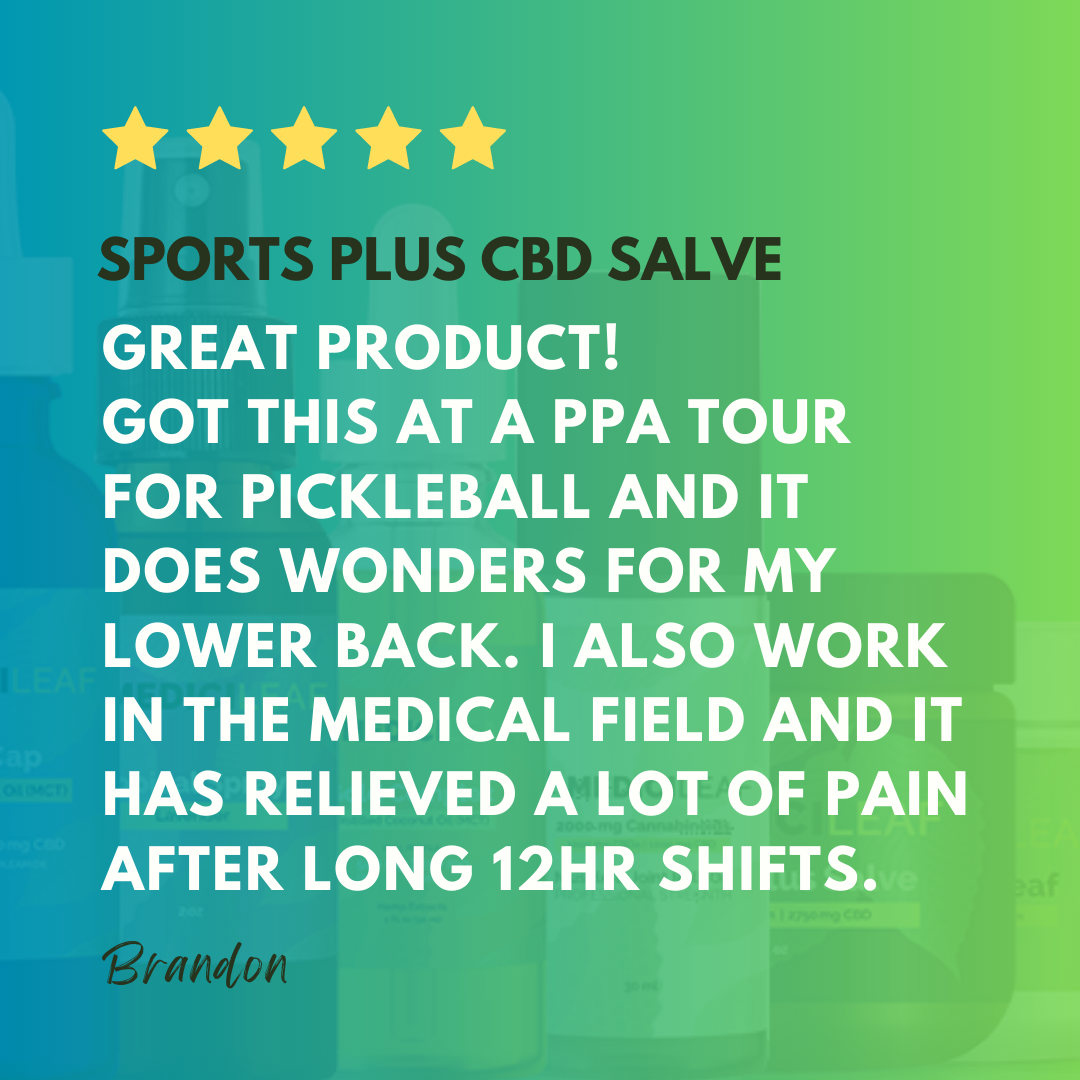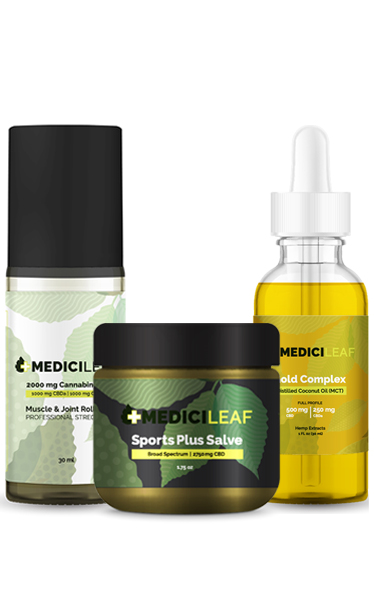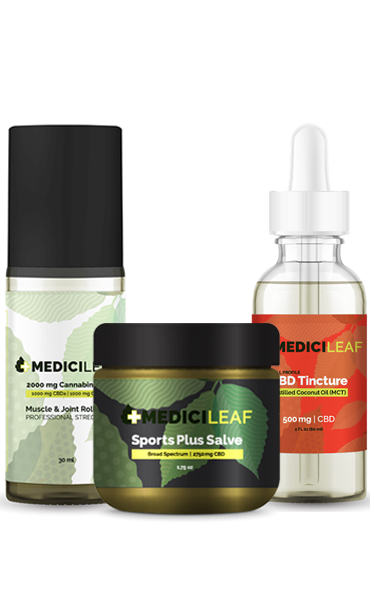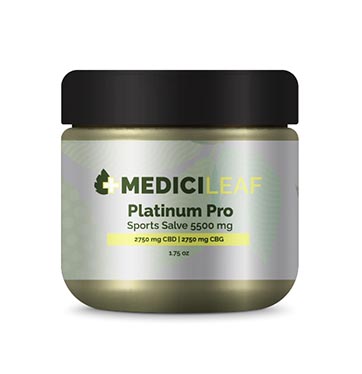Legal Aspects – Understanding CBD and Anti-Doping Regulations
6 months ago
In the dynamic world of sports, where the pursuit of excellence meets the rigor of regulation, athletes are continually navigating a complex landscape of rules and restrictions. Amidst this intricate web of legalities, one topic has garnered significant attention in recent years: the intersection of CBD and anti-doping regulations. As athletes increasingly turn to CBD for its purported benefits, from recovery to stress management, understanding the legal implications has become paramount. In this comprehensive guide, we delve into the legal aspects of CBD use in sports, exploring the nuanced regulations and considerations that athletes must navigate in their quest for peak performance. Join us as we unravel the intricacies of CBD and anti-doping regulations, shedding light on what every athlete needs to know in this evolving landscape of sports medicine and law.
CBD Landscape Overview
As cannabidiol (CBD) gains prominence in the realm of sports and wellness, it’s crucial to comprehend the broader landscape that shapes its use. CBD, a non-psychoactive compound extracted from the cannabis plant, has surged in popularity for its potential therapeutic benefits, including anti-inflammatory properties, anxiety & stress relief, quality sleep, and sore muscle recovery.
Legality and Confusion
Navigating the CBD landscape begins with the legal framework. The 2018 Farm Bill decriminalized hemp-derived CBD, differentiating it from marijuana. However, inconsistencies persist at the state level, creating a patchwork of regulations that can confuse athletes and sports professionals. Understanding the legal status of CBD in one’s jurisdiction is a pivotal starting point.
WADA’s Position
The World Anti-Doping Agency (WADA), the global body overseeing anti-doping regulations in sports, removed CBD from its list of prohibited substances in 2018. This move recognized the compound’s non-psychoactive nature and marked a significant shift in the acceptance of CBD in sports. However, it’s crucial to note that WADA’s removal of CBD from the prohibited list doesn’t grant a carte blanche. Athletes must remain vigilant about THC, the psychoactive cousin of CBD, which is still prohibited above a certain threshold.
Research-backed Benefits
The surge in CBD’s popularity is not merely anecdotal; research lends credence to its potential benefits. Studies, such as those published in the Journal of Clinical Medicine and Frontiers in Pharmacology, highlight CBD’s anti-inflammatory and analgesic properties. These attributes can be particularly appealing to athletes seeking natural alternatives for pain management and recovery.
Concerns and Controversies
While CBD holds promise, concerns and controversies persist. Quality control in the CBD market remains a challenge, with varying formulations and discrepancies in labeling. Athletes must be discerning consumers, opting for reputable products that undergo rigorous testing for purity and potency.
WADA Guidelines
Clarity is paramount for athletes navigating the intersection of CBD and anti-doping regulations. The World Anti-Doping Agency (WADA) plays a central role in shaping the guidelines that govern substance use in sports. Here’s a closer look at WADA’s stance on CBD:
Thresholds and Prohibited Substances
WADA, in its pursuit of fair play and athlete well-being, provides a comprehensive list of prohibited substances and methods. CBD’s removal from this list in 2018 signaled a recognition of its non-psychoactive nature. However, the devil is in the details, and athletes should be aware that THC, the psychoactive component of cannabis, remains prohibited above a specified threshold.
THC Concerns
While CBD itself may not pose a doping risk, THC, if present in CBD products, can lead to inadvertent violations. Athletes must exercise caution and choose CBD products that adhere to stringent quality standards, ensuring THC levels remain within the acceptable limits set by WADA.
Anti-Doping Rule Violations (ADRVs)
WADA’s guidelines extend beyond the mere presence of prohibited substances. Athletes are responsible for any substance found in their body, regardless of how it got there. This places the onus on athletes to scrutinize not only the CBD products they consume but also any potential cross-contamination issues during production.
Education and Communication
In its commitment to fairness, WADA emphasizes education. Athletes are encouraged to stay informed about the latest updates to the prohibited list, ensuring compliance with anti-doping regulations. Clear communication between athletes, their support teams, and anti-doping authorities is fundamental to fostering a doping-free sports environment.
The Importance of Third-Party Testing
Athletes can mitigate risks by opting for CBD products subjected to third-party testing. Rigorous testing ensures that the product contains the stated CBD concentration and complies with THC thresholds. This level of scrutiny aligns with WADA’s commitment to maintaining the integrity of sports competitions.
In navigating the labyrinth of anti-doping regulations, athletes must be vigilant interpreters of WADA’s guidelines. The evolving landscape of CBD acceptance in sports demands proactive engagement with regulations, education, and a discerning approach to product selection. As WADA continues to refine its stance on cannabinoids, athletes stand at the forefront of a transformative era where natural alternatives intersect with competitive sports.
National Anti-Doping Agencies
While WADA sets global standards, individual countries often have their anti-doping agencies with unique perspectives on CBD use in sports. Athletes operating within specific national jurisdictions must be aware of and adhere to the regulations established by their respective anti-doping agencies.
Varied Approaches
National anti-doping agencies may adopt approaches that differ from WADA’s regulations. Some countries align closely with WADA’s guidelines, while others may introduce additional restrictions or considerations. Athletes should be attuned to these nuances, recognizing that compliance isn’t solely based on international standards.
Consultation and Clarification
Given the potential disparities, athletes are encouraged to proactively engage with their national anti-doping agencies for consultation and clarification. This involves seeking guidance on CBD use, understanding any unique regulations, and ensuring full compliance with both international and national standards.
Educational Initiatives
Similar to WADA, national anti-doping agencies are committed to athlete education. Workshops, informational materials, and outreach programs are commonly employed to keep athletes informed about changes in regulations, potential risks, and the latest scientific insights into substances like CBD.
Impact on Athlete Eligibility
Failure to adhere to national anti-doping regulations can have severe consequences, including sanctions, suspension, or disqualification from competitions. Athletes must recognize that the rules of engagement extend beyond international frameworks, and compliance with national regulations is integral to maintaining eligibility.
CBD Products and Athlete Responsibility
As CBD gains popularity, a myriad of products flood the market, each claiming unique benefits. Athletes must exercise heightened responsibility in selecting and using CBD products to align with anti-doping regulations. Here are essential considerations:
Transparency in Product Sourcing
Athletes should prioritize CBD products from reputable manufacturers who provide transparent information about their sourcing, extraction methods, and third-party testing. Understanding the origin of CBD ensures compliance with regulations, as products derived from marijuana plants might contain higher THC levels.
THC Content Verification
Regulations mandate that CBD products must contain minimal THC, typically below the threshold of 0.3%. Athletes should verify THC content through product labels and third-party testing to avoid inadvertent violations. Reputable brands routinely test their products, assuring athletes of THC compliance.
Full-Spectrum vs. Isolate CBD
Athletes should be aware of the distinction between full-spectrum CBD (containing trace amounts of THC) and CBD isolate (pure CBD). Choosing CBD isolate reduces the risk of THC exposure, providing a safer option for athletes subject to strict anti-doping standards.
Avoiding Risky Additives
Some CBD products may include additives that pose risks to athletes. Additives like melatonin or herbal extracts could trigger anti-doping violations or cause adverse effects. Athletes must scrutinize product labels and opt for pure CBD formulations to minimize potential complications.
Consultation with Healthcare Professionals
Before incorporating CBD into their regimen, athletes should consult with healthcare professionals, especially those well-versed in sports medicine. Healthcare providers can offer personalized advice, ensuring CBD use aligns with an athlete’s health needs and doesn’t jeopardize their eligibility.
Documentation and Communication
Athletes are advised to keep detailed documentation of their CBD product usage, including product information, batch numbers, and third-party testing results. In the case of anti-doping inquiries, having thorough records facilitates transparent communication and helps demonstrate adherence to regulations.
Continuous Monitoring of Regulations
Anti-doping regulations and CBD-related guidelines may evolve. Athletes must stay informed through official channels, regularly checking updates from organizations like WADA and national anti-doping agencies. Being proactive in staying abreast of changes ensures ongoing compliance.
Navigating the intersection of CBD products and anti-doping regulations requires vigilance and informed decision-making. Athletes, as stewards of their well-being and adherence to rules, must approach CBD use with a discerning mindset, making choices that contribute to both performance optimization and regulatory compliance.
Educational Initiatives: Empowering Athletes with Knowledge
Recognizing the dynamic landscape of CBD and anti-doping regulations, educational initiatives play a pivotal role in empowering athletes with the knowledge needed to make informed decisions.
Here’s how educational programs contribute to athlete well-being:
Tailored CBD Education
Comprehensive CBD education programs, customized for athletes, are essential. These initiatives should cover the basics of CBD, its potential benefits, and crucially, the intricacies of anti-doping regulations. Athletes gain clarity on permissible CBD usage and the associated risks, fostering responsible choices.
Online Learning Platforms
Accessible online learning platforms offer athletes the flexibility to enhance their understanding of CBD at their own pace. These platforms provide in-depth modules on topics such as CBD extraction methods, product labeling interpretation, and the latest updates on anti-doping policies. This ensures athletes can access reliable information conveniently.
Workshops and Webinars
Interactive workshops and webinars facilitate direct engagement between athletes and experts. Industry professionals, including sports physicians, anti-doping officials, and CBD researchers, can share insights, answer queries, and address misconceptions. Athletes benefit from real-time, expert-guided information.
Collaboration with Sports Organizations
Collaboration between CBD manufacturers and sports organizations is instrumental in creating targeted educational content. By working together, these entities can develop resources that specifically address the intersection of CBD use and anti-doping regulations. This collaborative approach ensures relevance and accuracy.
Case Studies and Testimonials
Real-world experiences shared through case studies and testimonials offer valuable perspectives. Athletes who have successfully integrated CBD into their routines while adhering to anti-doping guidelines can provide insights into best practices. These personal narratives add a relatable dimension to educational initiatives.
Integration into Training Camps
Incorporating CBD education into training camps and preseason activities seamlessly integrates crucial information into an athlete’s regimen. This proactive approach ensures that athletes receive education on CBD’s nuances alongside their routine training, creating a holistic and practical learning environment.
Continuous Updates
Given the evolving nature of both CBD research and anti-doping regulations, educational initiatives must provide continuous updates. Athletes need reliable sources that keep them informed about any policy shifts, emerging research findings, or advancements in CBD-related guidelines.
By prioritizing educational initiatives, athletes become not just users of CBD but informed decision-makers navigating a complex landscape. Empowered with knowledge, athletes can confidently integrate CBD into their wellness routines while upholding the highest standards of integrity and compliance with anti-doping regulations.
Conclusion
In the realm where athletic performance meets regulatory compliance, understanding the legal landscape surrounding CBD usage is paramount. As athletes strive for excellence, they must navigate the nuanced terrain of anti-doping regulations with clarity and confidence.
Through exploring CBD and anti-doping regulations, we’ve shed light on the complexities and considerations that athletes face. From the evolving stance of organizations like WADA to the responsibilities borne by athletes themselves, the journey toward incorporating CBD into athletic routines is multifaceted.
It’s clear that while CBD offers potential benefits for athletes, caution and education are essential companions on this journey. By staying informed, athletes can leverage CBD’s potential while ensuring compliance with anti-doping regulations, safeguarding their careers and reputations.
As the CBD landscape continues to evolve, one thing remains constant: the need for comprehensive education and thoughtful decision-making. By embracing knowledge and responsibility, athletes can harness the power of CBD to enhance their well-being and performance while staying on the right side of the rules.
In this dynamic intersection of sports, wellness, and regulation, Medicileaf remains committed to supporting athletes with transparency, integrity, and innovation.





